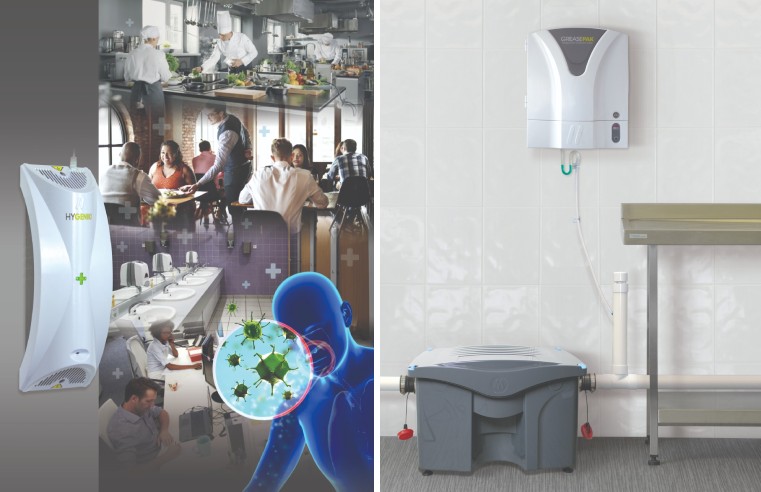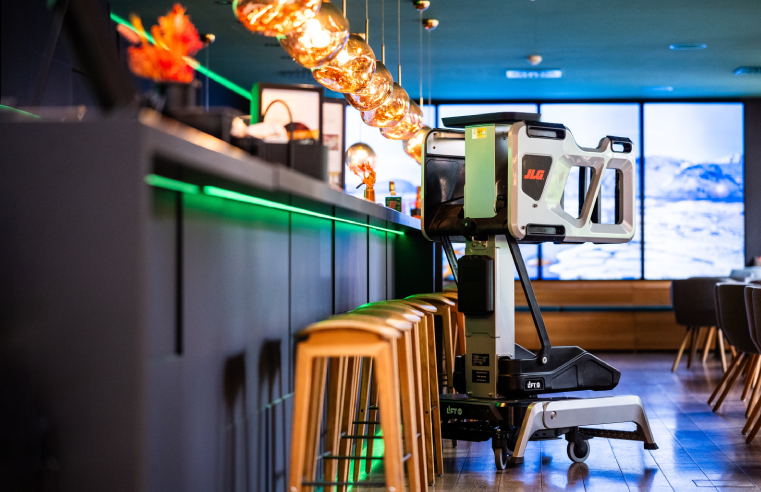Disposing of food waste generated by catering operations can be costly for businesses - both in terms of transportation and landfill charges and potential fines if food waste and Fats, Oils and Grease (FOG) block sewage networks. In light of this a sustainable approach to managing food waste is essential.
Kristian Roberts, Marketing Manager at Mechline Developments, said: “Mechline has developed a Food Waste Reduction Programme to help facilities managers and caterers review and understand how much food waste their business produces, how to take action to prevent, reduce or redistribute surplus food, and how to engage with staff to implement these actions. Part of the Mechline Food Waste Reduction Programme package is an informative brochure that outlines the steps to be taken, including how to create a food waste baseline and conduct a review of the waste a business produces.”
The informative 18-page brochure is available to the industry here, at no cost.
Roberts continued: “As the Mechline Food Waste Reduction Programme outlines, the ultimate aim has to be to prevent food waste in the first place and the HyGenikx air and surface sanitisation system from Mechline has been independently tested and verified by ALS Laboratories to significantly extend the shelf-life of fresh perishable foods, notably fruit and vegetables by an average of 58% (approximately 7.5 days), with some produce proving to last as much as 150% longer.
“Reducing food waste helps to prevent food waste from going to landfill and the associated carbon footprint impacts. This in turn saves on CO, CO2 and NOx emissions and the creation of Methane, as well as reducing operational costs. Reducing food waste also removes the need for ‘over-supply’ of product, which in turn greatly benefits the food chain and reduces pressure on production, benefitting a more sustainable environment. HyGenikx units are also kind on the environment in terms of energy efficiency as they require just 9-13 watts to operate and the integral lamp and back-up battery last 12 months before they should be changed. The HyGenikx range has models to suit every application, from food preparation areas, cold rooms, and front of house, to washrooms, refuse areas and larger occupied areas.
“Every catering operation will of course produce some unavoidable food waste but transporting and disposing it to landfill is a costly option for businesses which contributes to carbon emissions. Mechline’s Waste2O is an economical and environmentally friendly on-site solution for dealing with unavoidable, end-of-life food waste, which reduces the number of collections needed and costly waste management fees. The efficient Waste2O system can turn 180Kg of food waste to waste water in just 24 hours. Food is loaded into a chamber throughout the day, which is converted into waste water by naturally-occurring microorganisms and safely sent straight to the drain. This leaves no solids to deal with, which reduces odours and lowers the risk of infestation.
“Furthermore, unlike a lot of biodigesters, Mechline’s Waste2O has very low energy usage. It runs on a normal 10amp single phase electrical supply and waste is pumped using an on-board drain pump, which means it uses the same services as a domestic washing machine. The machine also reverts to an energy saving mode during slow periods (if the lid has not been opened for 6 hours or more) where it will draw less water, and the motor will run less frequently, offering savings of up to 15%.”
Roberts concluded: “Finally, operators are legally responsible if the discharge of Fats, Oils and Grease (FOG) from their premises blocks a sewer, not to mention the negative impact FOG discharges can have on ecosystems. Traditional standalone grease traps require regular visits from contractors to collect and dispose of FOG which is often a smelly, unhygienic process and the truck journeys involved can negatively impact caterers’ carbon footprint.
“Mechline’s BioCeptor system combines GreasePak’s proven biological treatment solution, in conjunction with the FOG, Intercept and Treatment unit (F.I.T) to retain and breakdown FOG - preventing it from entering drainage systems. It combines the traditional principles of entrapment and retention, with the natural process of bioremediation, to permanently degrade FOG onsite. As a result, there is less FOG waste to deal with, fewer licensed waste collections required, and a reduced carbon footprint.
“In field trials, the presence of GreasePak dosing into the F.I.T unit (versus without) extended the length of time between collections from 28 days to 12 weeks. The addition of Mechline’s Food Waste Strainer reduces the build-up of food waste sediment in the drainage system, and in grease traps/interceptors, which helps to prolong their service intervals even further. The complete system requires no electrics (there is the choice of a long-life battery-operated or a mains-powered GreasePak unit) and no hot water supply, making it a very low cost, energy efficient grease management option.”
For more information about the ALS shelf life study visit:https://www.mechline.com/wp-content/uploads/2020/03/HyGenikx-Success-Story_-Testing-_-SHELF-LIFE.pdf



































